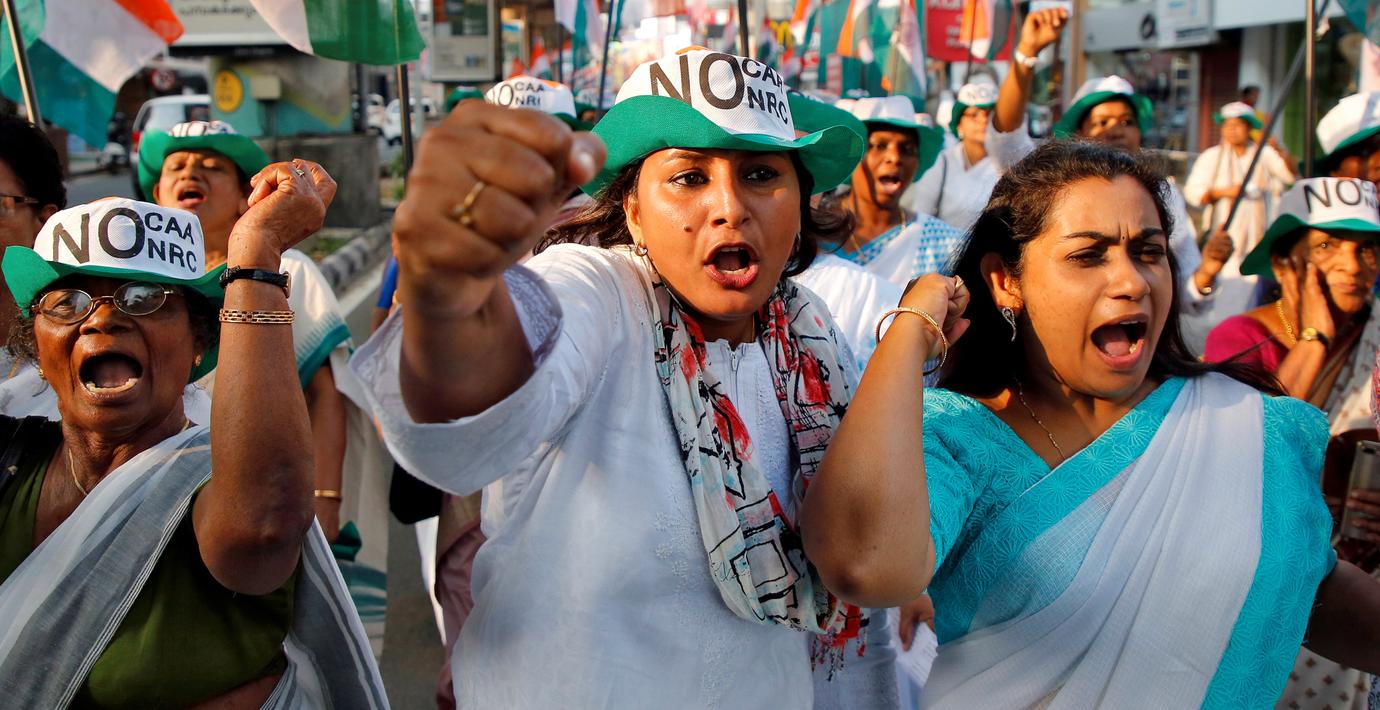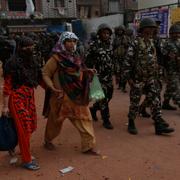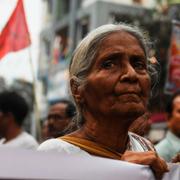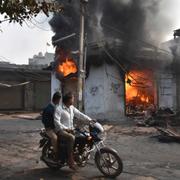
100 indiska tjänstemän i upprop mot medborgarlag
100 pensionerade indiska tjänstemän och politiker har skrivit ett öppet brev i protest mot den kritiserade medborgarlagen, skriver The Guardian.
I brevet skriver undertecknarna, bland annat tre tidigare ministrar, att lagen riskerar att bli godtycklig och diskriminerande.
Narendra Modis regering kommer troligen inte att skakas särskilt mycket av brevet, skriver tidningen. Under hans tid vid makten har flera öppna brev från intellektuella riktat kritik mot regeringen, som aldrig har svarat.
bakgrund
Medborgarlagarna i Indien
Wikipedia (en)
The Citizenship (Amendment) Act, 2019 was passed by the Parliament of India on 11 December 2019. It amended the Citizenship Act of 1955 by providing a path to Indian citizenship for Hindu, Sikh, Buddhist, Jain, Parsi, and Christian religious minorities that had fled persecution from Pakistan, Bangladesh and Afghanistan before December 2014. Muslims were not given such eligibility. The act was the first time religion had been overtly used as a criterion for citizenship under Indian law.The Hindu nationalist Bharatiya Janata Party (BJP), which leads the Indian government, had promised in previous election manifestos to offer Indian citizenship to persecuted religious minorities from neighboring countries. Under the 2019 amendment, migrants who had entered India by 31 December 2014, and had suffered "religious persecution or fear of religious persecution" in their country of origin were made eligible for citizenship. The amendment also relaxed the residence requirement for naturalization of these migrants from eleven years to five. Immediate beneficiaries of the Bill, according to the Intelligence Bureau of India, will be 31,313 refugees: 25,447 Hindus, 5,807 Sikhs, 55 Christians, 2 Buddhists and 2 Parsis.The amendment has been widely criticised as discriminating on the basis of religion, in particular for excluding Muslims. The Office of the United Nations High Commissioner for Human Rights called it "fundamentally discriminatory", adding that while India's "goal of protecting persecuted groups is welcome", this should be accomplished through a non-discriminatory "robust national asylum system". Critics express concerns that the bill would be used, along with the National Register of Citizens, to render many Muslim citizens stateless, as they may be unable to meet stringent birth or identity proof requirements. Commentators also question the exclusion of persecuted religious minorities from other regions such as Tibet, Sri Lanka and Myanmar. The Indian government says that Pakistan, Afghanistan and Bangladesh are Muslim-majority countries therefore Muslims are "unlikely to face religious persecution" there. However, certain Muslim groups, such as Hazaras and Ahmadis, have historically faced persecution in these countries.The passage of the legislation caused large-scale protests in India. Assam and other northeastern states have seen violent demonstrations against the bill over fears that granting Indian citizenship to refugees and immigrants will cause a loss of their "political rights, culture and land rights" and motivate further migration from Bangladesh. In other parts of India, protesters said the bill discriminated against Muslims and demanded that Indian citizenship be granted to Muslim refugees and immigrants. Major protests against the Act were held at universities in India. Students at Aligarh Muslim University and Jamia Millia Islamia alleged brutal suppression by the police. The protests have led to the deaths of several protesters, injuries to protesters and police personnel, damage to public and private property, the detention of hundreds of people, and suspensions of local internet mobile phone connectivity in certain areas. Some states have announced they will not implement the Act. The Union Home Ministry has said that states lack the legal power to stop the implementation of the CAA.
Omni är politiskt obundna och oberoende. Vi strävar efter att ge fler perspektiv på nyheterna. Har du frågor eller synpunkter kring vår rapportering? Kontakta redaktionen



